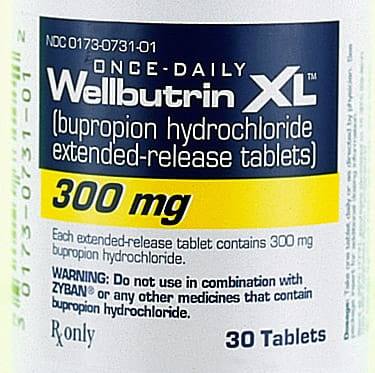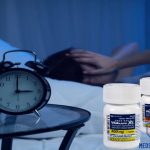Can you take Wellbutrin at night instead of morning?

Generally, we all want our medicines to be as effective as possible, and that requires effort on our part. It may be necessary to avoid taking pills with certain foods or drinks and to check that medications won’t interfere with each other.
And in some cases, it may be important to take a drug at a particular time of day. This approach, known as chronotherapy, is gaining attention as research suggests a relationship between when we take medications and how well they work.
What is Wellbutrin?
Wellbutrin is a commonly used antidepressant that contains the prescription drug bupropion. Wellbutrin is classed as an aminoketone, it was first approved for clinical use in the United States (U.S.) in 1985. It is one of the most frequently prescribed antidepressants in the English-speaking world.
It is mainly used to treat and prevent depression and as a smoking cessation aid. It is less likely to cause weight gain or sexual dysfunction than an SSRI, but it can trigger seizures in those who are susceptible.
Most antidepressants are selective serotonin reuptake inhibitors (SSRI). They boost the levels of serotonin in the brain.
Wellbutrin is different. It is a norepinephrine-dopamine reuptake inhibitor (NDRI). An NDRI boosts levels of the neurotransmitters norepinephrine, also known as noradrenaline, and dopamine.
Its action is complex, and its neurological effects are only partly understood. As well as being an antidepressant, bupropion is an antagonist at nicotinic receptors. This means that it blocks receptors where nicotine normally binds, making it useful in smoking cessation.
How should I take Wellbutrin?
Wellbutrin is taken by mouth as a 75-milligram (mg) tablet, a 100-mg tablet, or a 150-mg extended-release (XR) tablet. The 150-mg XR tablet is more popular.
A person who is using the 150-mg SR tablet will take one tablet twice a day. No single dose should exceed 150 mg, and the daily dose should not exceed 450 mg.
The tablet should be taken in the morning and, in the case of the XR tablet, swallowed whole. Breaking or chewing an XR tablet increases the risk of an overdose, and possibly seizures.
Can you take Wellbutrin at night instead of morning?
Yes, you can take Wellbutrin at night but it will affect your sleep especially if you already have trouble sleeping (insomnia). Studies have shown that taking Wellbutrin at night can alter sleep patterns.
The best time to take Wellbutrin is not at night but in the morning, if your doctor has prescribed multiple doses for you to take throughout the day, separate the doses by at least 6-8 hours (depending on which form of Wellbutrin you are taking). If you miss a morning dose of Wellbutrin, skip the dose.
Wellbutrin side effects
Get emergency medical help if you have any of these signs of an allergic reaction to Wellbutrin: (hives, itching, fever, swollen glands, difficult breathing, swelling in your face or throat) or a severe skin reaction (fever, sore throat, burning eyes, skin pain, red or purple skin rash with blistering and peeling).
Report any new or worsening symptoms to your doctor, such as mood or behavior changes, anxiety, depression, panic attacks, trouble sleeping, or if you feel impulsive, irritable, agitated, hostile, aggressive, restless, hyperactive (mentally or physically), or have thoughts about suicide or hurting yourself.
Call your doctor at once if you have:
• a seizure (convulsions);
• confusion, unusual changes in mood or behavior;
• blurred vision, tunnel vision, eye pain or swelling, or seeing halos around lights;
• fast or irregular heartbeats; or
• a manic episode – racing thoughts, increased energy, reckless behavior, feeling extremely happy or irritable, talking more than usual, severe problems with sleep.
Common Wellbutrin side effects may include:
• dry mouth, sore throat, stuffy nose;
• ringing in the ears;
• blurred vision;
• nausea, vomiting, stomach pain, loss of appetite, constipation;
• sleep problems (insomnia);
• tremors, sweating, feeling anxious or nervous;
• fast heartbeats;
• confusion, agitation, hostility;
• rash;
• weight loss;
• increased urination;
• headache, dizziness; or
• muscle or joint pain.
This is not a complete list of side effects and others may occur. Call your doctor for medical advice about side effects. You may report side effects to FDA at 1-800-FDA-1088.
Wellbutrin Interactions
• Do not use this medicine and an MAO inhibitor (MAOI) within 14 days of each other. Do not use Zyban® to quit smoking if you already take Aplenzin® or Wellbutrin® for depression, because they are the same medicine.
• Tell your doctor if you take barbiturates, benzodiazepines, antiseizure medicine, or sedatives, or if you recently stopped taking them.
• Some medicines can affect how bupropion works. Tell your doctor if you use any of the following: Amantadine, carbamazepine, cimetidine, clopidogrel, cyclophosphamide, digoxin, efavirenz, levodopa, lopinavir, nelfinavir, nicotine patch, orphenadrine, phenobarbital, phenytoin, ritonavir, tamoxifen, theophylline, thiotepa, ticlopidineBeta blocker medicine (including metoprolol)A blood thinner (including warfarin)Insulin or diabetes medicine. Medicine to treat depression (including desipramine, fluoxetine, imipramine, nortriptyline, paroxetine, sertraline, and venlafaxine). Medicine to treat heart rhythm problems (including flecainide, and propafenone). Medicine to treat mental illness (including haloperidol, risperidone, and thioridazine). Steroid medicine (including dexamethasone, hydrocortisone, methylprednisolone, prednisolone, and prednisone).
• Do not drink alcohol while you are using this medicine.
• Tell your doctor if you use anything else that makes you sleepy. Some examples are allergy medicine, narcotic pain medicine, and alcohol.
• Zyban® is only part of a complete program to help you quit smoking. You may still want to smoke at times. Have a plan to cope with these situations.
• Do not stop using this medicine suddenly. Your doctor will need to slowly decrease your dose before you stop it completely.
• Tell any doctor or dentist who treats you that you are using this medicine. This medicine may affect certain medical test results.
• Your doctor will check your progress and the effects of this medicine at regular visits. Keep all appointments.
• Keep all medicine out of the reach of children. Never share your medicine with anyone.





